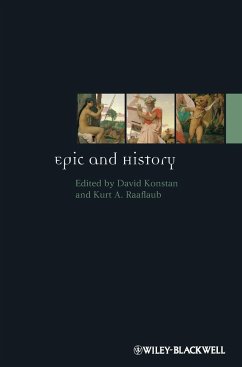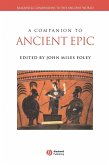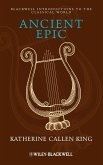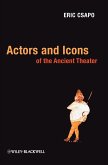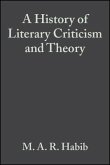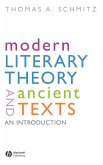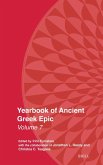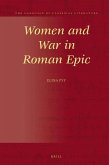Heroic epics have existed in many cultures, from antiquity to the modern day, offering an important means by which societies commemorate the past and transmit memories over time. Yet few attempts have been made to compare these epics systematically or to establish a typology of heroic epic. Nor is it always clear to what extent heroic epics reflect history, or what methodologies might be used to retrieve historical information from epics. Addressing these issues, Epic and History invites comparison across a broad variety of cultures in which traditions of epic - oral and written - existed and continue to exist. It makes a unique and conscious effort to take full advantage of this cross-cultural comparison to enhance our understanding of this important topic, presenting crucial insights into how history is treated in narrative poetry. Contributors are leading scholars on epic and heroic poetic traditions. They base their analyses on profound knowledge of the wide range of cultures discussed throughout the book, from the ancient Near East and South Asia, the Greco-Roman world, and medieval Europe - from Scandinavia to Spain - to today's Egypt, Southern Africa, and Central America.
"The reader will surely find useful and insightful comparativematerial in all the essays." (Bryn Mawr ClassicalReview, February 2011)
"I would recommend this volume both for scholars of epic andheroic literature (especially if they have interests in comparativeliterature or in questions of orality and historicity), who will nodoubt enjoy its generally succinct essays with pertinentbibliography for each tradition." (Bmcreview, 9 February 2011)
"Essential. Graduate students and researches." (Choice, October2010)"A remarkably wide-ranging collection, deeply learned, ecumenicalin spirit, and diverse in its approaches."
Martin Mueller, Northwestern University
"This book is an 'epic' undertaking in its ownright, extending across four millennia in time, and most of theglobe in setting. The challenging mosaic of studies takesshape as an exploratory chart of how memory, story-telling and thedesire for heroes may relate to what we might want to call'History'".
Oliver Taplin, Magdalen College, OxfordUniversity
"Answers come and go. Questions persist. One of the manyvirtues of this volume of collected essays is its ability tore-open some fundamental discussions about epic, history, genre,and memory. It does so in a sophisiticated, learned, and wideranging manner. This book problematizes the relationships betweenliterary form, fact, and tradition in a way that will inform andexcite scholars in many fields for many years."
Ahuvia Kahane, Royal Holloway, University of London
"I would recommend this volume both for scholars of epic andheroic literature (especially if they have interests in comparativeliterature or in questions of orality and historicity), who will nodoubt enjoy its generally succinct essays with pertinentbibliography for each tradition." (Bmcreview, 9 February 2011)
"Essential. Graduate students and researches." (Choice, October2010)"A remarkably wide-ranging collection, deeply learned, ecumenicalin spirit, and diverse in its approaches."
Martin Mueller, Northwestern University
"This book is an 'epic' undertaking in its ownright, extending across four millennia in time, and most of theglobe in setting. The challenging mosaic of studies takesshape as an exploratory chart of how memory, story-telling and thedesire for heroes may relate to what we might want to call'History'".
Oliver Taplin, Magdalen College, OxfordUniversity
"Answers come and go. Questions persist. One of the manyvirtues of this volume of collected essays is its ability tore-open some fundamental discussions about epic, history, genre,and memory. It does so in a sophisiticated, learned, and wideranging manner. This book problematizes the relationships betweenliterary form, fact, and tradition in a way that will inform andexcite scholars in many fields for many years."
Ahuvia Kahane, Royal Holloway, University of London

